Ditapis dengan
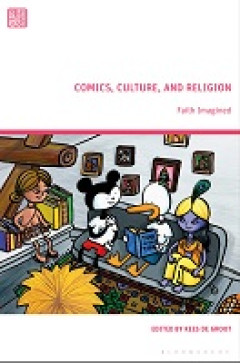
E-book Comics, Culture, and Religion
This open access book offers an overview of the relations between comics and religion from the perspective of cultural sociology. How do comics function in religions and how does religion appear in comics? And how do graphic narratives inform us about contemporary society and the changing role of religion? Contributing scholars use international examples to explore the diversity of religions, s…
- Edisi
- -
- ISBN/ISSN
- -
- Deskripsi Fisik
- 263 hlmn
- Judul Seri
- -
- No. Panggil
- 201.76 ASP c
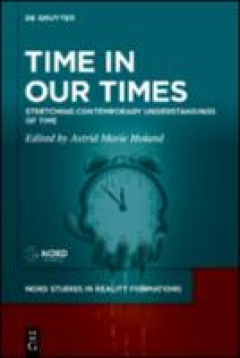
E-book Time in Our Times: Stretching Contemporary Understandings of Time
What is happening to perceptions of time, durability and reality in the 21th century? This anthology explores a diversity of uncommon insights about time, as seen from our historical and geographical standpoint. It sheds new light on how construction, perception and regulation of time influences a person’s whole being in the world, collectively and individually, in the short and long run, fro…
- Edisi
- -
- ISBN/ISSN
- 9783111428970
- Deskripsi Fisik
- 357 halaman
- Judul Seri
- -
- No. Panggil
- 115 HOL t
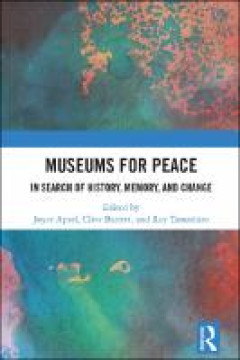
E-Book Museums for Peace: In Search of History, Memory, and Change
Museums for Peace: In Search of History, Memory and Change highlights the inspiring as well as conflicting representations and purposes of diverse museums for peace around the world. Coming from various cultural and professional backgrounds, the authors explore “what are museums for peace and what do they mean?” Some chapters introduce alternative histories of peace, conflict, and memoriali…
- Edisi
- -
- ISBN/ISSN
- 9781003818045
- Deskripsi Fisik
- 255 halaman
- Judul Seri
- -
- No. Panggil
- 069 APS m
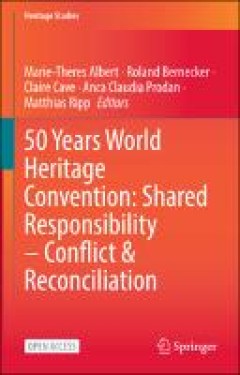
E-Book 50 Years World Heritage Convention: Shared Responsibility – Conflict…
This open access book identifies various forms of heritage destruction and analyses their causes. It proposes strategies for avoiding and solving conflicts, based on integrating heritage into the 2030 Agenda for Sustainable Development. It reflects on the identity-building role of heritage, on multidimensional conflicts and the destruction of heritage, and considers conflict-solving strategies …
- Edisi
- -
- ISBN/ISSN
- 9783031056604
- Deskripsi Fisik
- 2022
- Judul Seri
- -
- No. Panggil
- 306.4 ALB f

E-Book Are We Comparing Yet?: On Standards, Justice, and Incomparability
Debates about the possibility of an open culture – or indeed about the possibility of an open debate about the openness of culture – often turn on questions of standards. But since no benchmark can be absolute, judgement is a proliferation of comparisons. Through a series of case studies in everyday and academic comparison (literature, history, politics, philosophy), Haun Saussy calls out t…
- Edisi
- -
- ISBN/ISSN
- 9783837649772
- Deskripsi Fisik
- 112 halaman
- Judul Seri
- -
- No. Panggil
- 170.44 SAU a
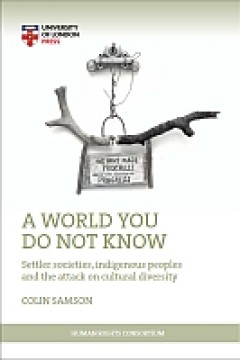
E-Book A World You Do Not Know: Settler Societies, Indigenous Peoples and the…
A World You Do Not Know explores the wilful ignorance demonstrated by North America’s settlers in establishing their societies on lands already occupied by indigenous nations. Using the Innu of Labrador-Quebec as one powerful contemporary example, Colin Samson shows how the processes of displacement and assimilation today resemble those of the 19th century as the state and corporations scramb…
- Edisi
- -
- ISBN/ISSN
- 9781912250394
- Deskripsi Fisik
- 284 halaman
- Judul Seri
- -
- No. Panggil
- 301 SAM a
 Karya Umum
Karya Umum  Filsafat
Filsafat  Agama
Agama  Ilmu-ilmu Sosial
Ilmu-ilmu Sosial  Bahasa
Bahasa  Ilmu-ilmu Murni
Ilmu-ilmu Murni  Ilmu-ilmu Terapan
Ilmu-ilmu Terapan  Kesenian, Hiburan, dan Olahraga
Kesenian, Hiburan, dan Olahraga  Kesusastraan
Kesusastraan  Geografi dan Sejarah
Geografi dan Sejarah